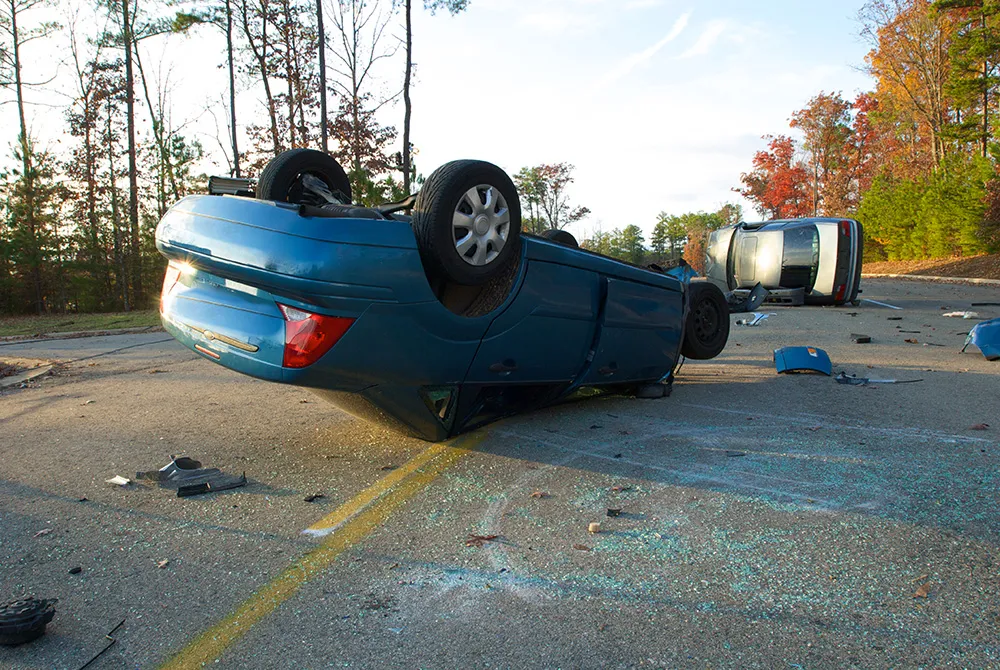Figures have long since become an important part of our daily lives. Data on all the humdrum events around us is regularly used to shape political policy that is in most instances, designed to improve our well-being.
February 23, 2012
Read time: 3 mins
Figures have long since become an important part of our daily lives. Data on all the humdrum events around us is regularly used to shape political policy that is in most instances, designed to improve our well-being. However interpreting recovered data is where many disagreements arise and where differing outlooks on life or political opinions can come to bear.
Everyone would agree that improving road safety is a priority, a fact that goes beyond politics. The debate begins on how best to bring about that change and particularly, how best to analyse recovered accident data.
For example, the1197 European Transport Safety Council (ETSC) says that its data shows excessive speed increases the risk of a crash and the severity of crash outcomes. According to the ETSC, it is estimated that speeding contributes to as much as one third of all crashes resulting in death, and it is the most important contributory factor to road deaths and injuries. In most societies speeding is still considered more socially acceptable than drink driving, and the risk posed by so-called 'minor speeding' is also grossly underestimated: in fact it is estimated that at any one moment about 35% of European drivers exceed speed limits outside built-up areas and as much as 50% in urban areas.
But looking at the data used by the ETSC from a different angle yields surprising results. According to Australian road safety expert John Lambert, UK data on causes of crashes shows exceeding the speed limit is a factor in 5% of crashes. He points out that the ratio between the two figures is 8:1 and adds that it would be feasible to argue in a statistical sense this suggests that exceeding the speed limit is in fact a safety improving activity. While Lambert admits that exceeding speed limits does not boost road safety, he does question how large a factor it plays in accident levels and believes that measures other than controlling speed might be more effective in reducing road accidents.
His comparison of UK accident data with information from the Australian state of Victoria suggests for example that drink driving is a major cause of accidents. While the level of driving with a blood alcohol count (BAC) of 0.05 or higher is around 3.5%, the incidence of BAC levels of 0.05 BAC or higher in drivers in fatal crashes is 25%. He points out that the ratio between the two figures is 1:6 and this makes it clear that drink driving has a negative effect on road safety. Similarly, the incidence of people driving with illegal drugs detected in blood <1.0%%, while the incidence of illegal drugs detected in blood in drivers involved in fatal crashes is 32%. The ratio between the two figures is 1:10, showing that driving under the influence of drugs has a very negative effect on road safety. And lastly he shows that the figures for people driving without a seatbelt are around 2%, while the incidence of people not wearing of seatbelts being involved in fatalities is 20%.
Enforcing existing laws against driving under the influence of drink or drugs and ensuring all vehicle occupants wear seatbelts could still have a major benefit on reducing road accidents according to Lambert.
Everyone would agree that improving road safety is a priority, a fact that goes beyond politics. The debate begins on how best to bring about that change and particularly, how best to analyse recovered accident data.
For example, the
But looking at the data used by the ETSC from a different angle yields surprising results. According to Australian road safety expert John Lambert, UK data on causes of crashes shows exceeding the speed limit is a factor in 5% of crashes. He points out that the ratio between the two figures is 8:1 and adds that it would be feasible to argue in a statistical sense this suggests that exceeding the speed limit is in fact a safety improving activity. While Lambert admits that exceeding speed limits does not boost road safety, he does question how large a factor it plays in accident levels and believes that measures other than controlling speed might be more effective in reducing road accidents.
His comparison of UK accident data with information from the Australian state of Victoria suggests for example that drink driving is a major cause of accidents. While the level of driving with a blood alcohol count (BAC) of 0.05 or higher is around 3.5%, the incidence of BAC levels of 0.05 BAC or higher in drivers in fatal crashes is 25%. He points out that the ratio between the two figures is 1:6 and this makes it clear that drink driving has a negative effect on road safety. Similarly, the incidence of people driving with illegal drugs detected in blood <1.0%%, while the incidence of illegal drugs detected in blood in drivers involved in fatal crashes is 32%. The ratio between the two figures is 1:10, showing that driving under the influence of drugs has a very negative effect on road safety. And lastly he shows that the figures for people driving without a seatbelt are around 2%, while the incidence of people not wearing of seatbelts being involved in fatalities is 20%.
Enforcing existing laws against driving under the influence of drink or drugs and ensuring all vehicle occupants wear seatbelts could still have a major benefit on reducing road accidents according to Lambert.







